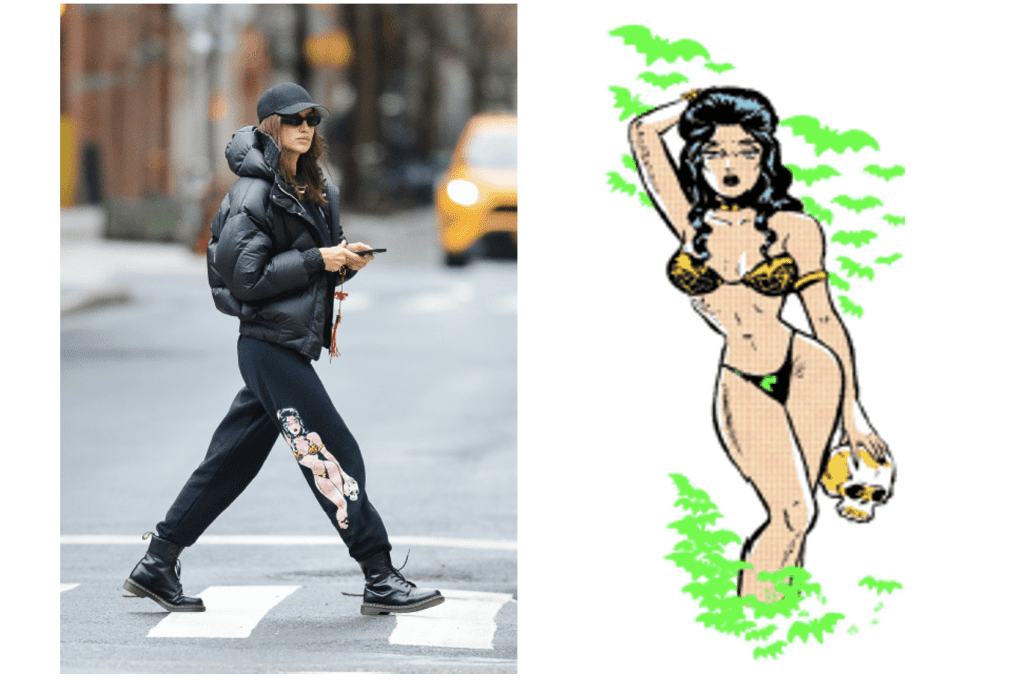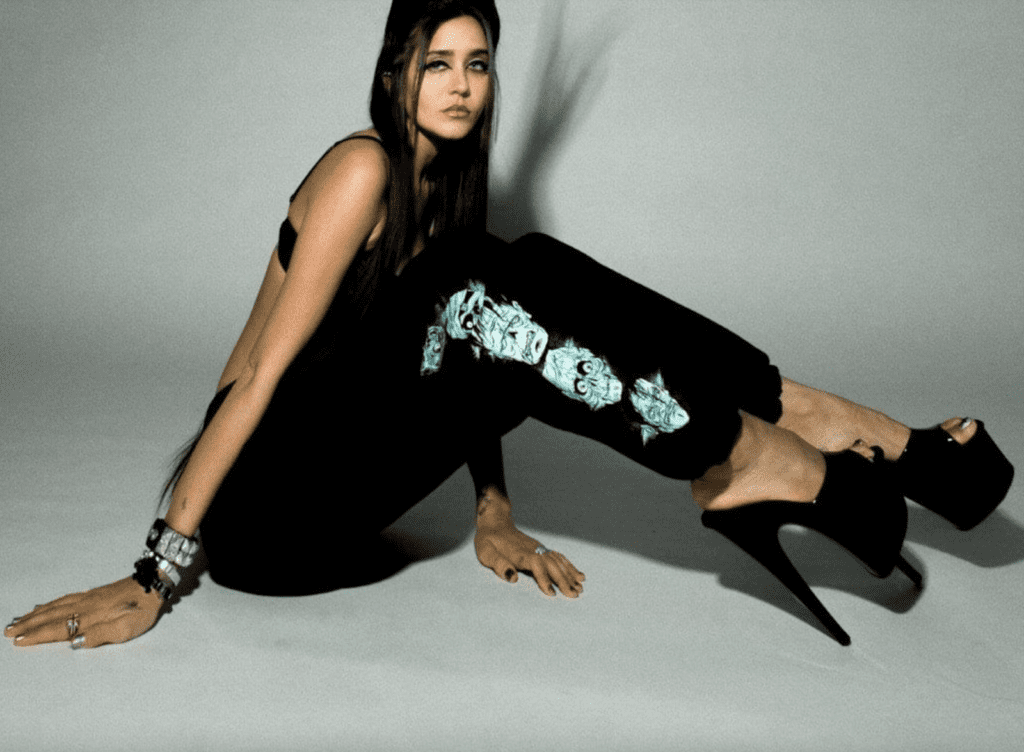An interesting copyright infringement lawsuit over a paparazzi photo, a pair of designer sweatpants, and section 113(c) has come to a close. In a filing late last month, Carlos Vila and Deadly Doll, Inc. alerted Judge Otis Wright of the U.S. District Court for the Central District of California that they have reached an agreement in principle to settle the case that has pitted them against one another since the summer of 2021. In their May 31 joint notice of settlement, the parties confirmed that they have come to a confidential settlement to resolve all claims between them and are “in the process of documenting and performing their settlement.”
For some background: The case got its start just like many of the other paparazzi photographer-initiated cases that have flooded dockets in New York and California in recent years, with a paparazzi filing a copyright infringement lawsuit against a fashion brand (or a celebrity in many cases) for posting his/her photo(s) on Instagram without authorization or a license. In this case, Vila filed suit against Deadly Doll in July 2021 for posting one of his images – a photo of model Irina Shayk in a pair of the brand’s sweatpants – on its Instagram. The infringing photo is “an exact copy of the entirety of [Vila’s] original image that was directly copied and [posted] by Deadly Doll on [its Instagram] account,” Vila asserted in his complaint.
Deadly Doll – which was founded by musician Jesse Jo Stark, whose parents Richard Stark and Laurie Lynn Stark are behind cult label Chrome Hearts – responded to Vila’s complaint in September 2021 with claims of its own. Primarily, the Los Angeles-based brand asserted that by taking and subsequently offering up the photo of Shayk for license to media outlets, Vila captured the “pin-up” girl image that appears on the sweatpants for which Deadly Doll owns the copyright. In doing so, Deadly Doll argued that Vila created an unauthorized derivative work. In asserting its counterclaims, Deadly Doll also took issue with Vila’s “alleged ‘copyright’ in the unauthorized derivative photograph” of Shayk and sought a declaration from the court that its copyright in the “pin-up” girl image artwork is valid, while the “alleged copyright in [Vila’s photo] is invalid.”

On the heels of filing his answer to Deadly Doll’s counterclaims, Vila lodged an unsuccessful motion for judgment on the pleadings, angling to get Deadly Doll’s counterclaims tossed out on the basis that his photo is not a “derivative work” as a matter of law – and thus, does not infringe the brand’s copyright in the “pin-up” girl artwork. Beyond that, Vila argued that he was entitled to judgment on the pleadings because “Deadly Doll’s copyright in the artwork is invalid, and [his] photograph constitutes fair use of the [Deadly Doll] artwork.” Judge Otis Wright held last fall that Vila was not entitled to judgment on the pleadings on any front.
But then in March 2023, the court granted Vila’s motion for summary judgment, siding with the photographer on his direct copyright infringement claim against Deadly Doll and on Deadly Doll’s copyright-centric counterclaims, as well. In addition to finding that the Deadly Doll pants “do not qualify as a ‘pre-existing’ work within the meaning of the Copyright Act,” and thus, Vila’s photo cannot be a derivative work, the court held that Vila demonstrated that he maintains a valid copyright registration, and that Deadly Doll “fails to point to any genuine factual dispute that might disturb [that].” Against that background and in light of the lack of a material dispute that “Deadly Doll copied Vila’s photo,” and posted it to the Instagram account without his permission and without making any changes to the photo, the court held that Vila was entitled to summary judgment as to liability on his claim for direct copyright infringement.
WORTH NOTING: In an article he wrote after the court denied Vila’s motion for a judgment on the pleadings in August 2022, Greenberg Glusker’s Aaron Moss pointed to Section 113(c) of the Copyright Act, which “allows photographs of useful articles incorporating copyrighted works to be made and used without violating copyright law.” Moss asserted on his site Copyright Lately that while section 113(c) is “remarkably useful” and “provides a simple and straightforward defense” to certain infringement claims (i.e., those involving useful articles), it is “largely overlooked – even by copyright lawyers and judges” – including the ones in this case (at least initially). By rejecting Vila’s bid for a judgment on the pleadings, Moss says that the court “allowed Deadly Doll’s copyright infringement counterclaim to proceed against a photo that is almost certainly protected by 113(c).”
As for the parties here initially overlooking section 113(c), Vila seems to have first cited it in his October 2022 motion for summary judgment, in which he argued that he was entitled to a judgment from the court with respect to Deadly Doll’s counterclaims because “the pants to which [Deadly Doll’s] ‘Pin-Up Doll’ image was affixed is a ‘useful article’ that was offered for sale … and as such, the making, distribution, or display of pictures or photographs of such article in connection with advertisements, commentaries or news reports would not be an infringement of copyright.” In short: Vila argued that “insofar as the ‘Pin- up’ girl image was affixed to a useful article (pants) by [Deadly Doll], [his] photograph of any individual wearing such pants in a public place is protected by section 113(c).”
To this, Deadly Doll unsuccessfully argued that if section 113(c) does apply in this case, it “bars Vila’s copyright infringement claims against [it]” – and not the reverse – because it posted the photo “on Instagram for public comment.”
In his March 27 order, Judge Wright briefly addressed Deadly Doll’s section 113(c) argument, stating that “under 17 U.S.C. s. 113(c), a copyright holder of a work that is reproduced on an article does not have ‘any right to prevent the making, distribution, or display of pictures or photographs of such articles in connection with advertisements or commentaries related to the distribution or display of such articles, or in connection with news reports.’” Against that background, the judge held that Deadly Doll’s argument failed “because [the fashion brand] infringed Vila’s copyright in the photograph, which is not a copyright for a work reproduced on an article,” and thus, s. 113(c) “does not bar Vila’s infringement claim.”
The case is Carlos Vila v. Deadly Doll, Inc., 2:21-cv-05837 (C.D. Cal.).














